|
|

|
|

|
|
|
|
Speakers
|
| |
|
|
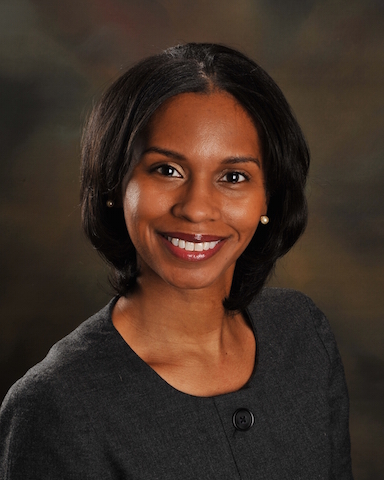
|
|
Adrienne Grier
Manager, Smart Grid Programs, ComEd
Adrienne Grier is the Manager of Smart Grid Programs for Smart Grid & Technology at ComEd. She is responsible for managing (a) development and evaluation of business cases for emerging technologies, (b) business transformation activities associated with full scale deployment of approved technologies (c) development of a Smart City platform for ComEd including management of a Community of the Future initiative. In her prior roles, Adrienne served as principal project manager & executive assistant to ComEd President & CEO Anne Pramaggiore; principal compliance specialist assisting in the development of state and local compliance program and support of key witnesses in ComEd annual formula rate update filings; principal internal auditor for Exelon and external auditor for RSM US LLP. Adrienne holds a BBA in Accountancy from
Loyola University Chicago and is a registered CPA. |
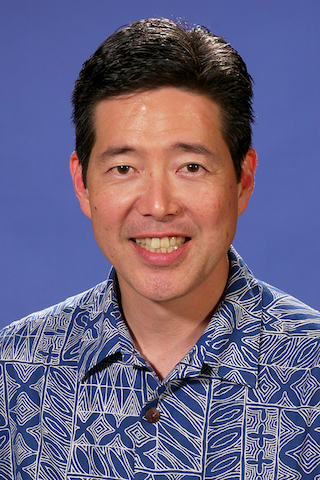
|
|
Colton Ching
Vice President, Energy Delivery, Hawaiian Electric Company
Colton is responsible for the planning, design, construction, and maintenance of O‘ahu’s transmission and distribution infrastructure. He also leads a team that plans the generation, transmission and distribution systems for Oahu, Maui County, and Hawaii island. This includes leading Hawaiian Electric’s efforts to integrate rooftop solar and other renewable energy resources on our islands’ grids. Colton has been with Hawaiian Electric for more than 25 years, serving in various roles in engineering, planning, strategy, operations, and construction. He has served in his current role since January 2013 and prior to that, served as vice president, system operation and planning.
In addition to his work at Hawaiian Electric, Colton serves on the Corporate Board of Directors of the Boys and Girls Club of Hawai‘i, the Executive Board of the Aloha Council for the Boy Scouts of America, and on the State of Hawai‘i Advisory Council on Emergency Management. Colton is also one of 13 inaugural cohorts in the Omidyar Fellows Leadership program.
Colton was born and raised on the island of Maui and is a graduate of the University of Hawai‘i at Mānoa where he received a degree in Mechanical Engineering. He now calls Kāneʻohe home where he resides with his wife Vicky and their son Jacob.
|
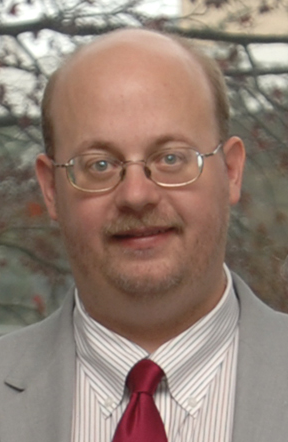
|
|
David Wollman
Deputy Director, Smart Grid and Cyber-Physical Systems Program Office, U.S. Department of Commerce’s National Institute of Standards and Technology (NIST)
Dr. David Wollman is Deputy Director of the Smart Grid and Cyber-Physical Systems Program Office of the U.S. Department of Commerce’s National Institute of Standards and Technology (NIST). Dr. Wollman leads efforts to coordinate and accelerate the private-sector development of smart grid interoperability standards, including as the NIST ex-officio Board member on the Smart Grid Interoperability Panel, and as part of the leadership team advancing the White House Green Button Initiative on energy usage information. Dr. Wollman is also expanding NIST’s coordination activities in the more general area of cyber-physical systems (CPS) through the NIST CPS Public Working Group and its CPS Framework activity. Previously at NIST, he managed efforts to maintain and advance the U.S. electrical standards and metrology supporting the electric power industry, in addition to serving as scientific advisor, program analyst and bench-level scientist. Before joining NIST, Dr. Wollman received his Ph.D. from the University of Illinois at Urbana-Champaign, and a B.S. in physics from Michigan State University. He has received many awards, including two U.S. Department of Commerce Gold Medals/one Silver Medal, and the NIST Applied Research Award, and he has received three U.S. patents.
|
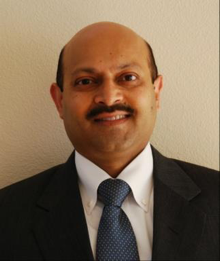
|
|
Dhaval Dagli
Principal Manager of Regulatory Policy, Regulatory Affairs, Southern California Edison (SCE)
Dhaval has 25 years of experience in the electricity industry. In his current role at SCE, he is responsible for policy development and case management of emerging regulatory policies such as distributed energy resources, energy storage, net energy metering, electric vehicles charging infrastructure, grid modernization, and advanced technology deployment.
Prior to his current role, Dhaval served as SCE’s principal manager of regulations and compliance for energy, fuel and emissions procurement activities from wholesale energy markets. In this role, he worked on setting up CPUC’s long-term resource procurement framework, fuel and power hedging framework, the CAISO’s day-ahead and real-time energy markets, and California Air Resources Board’s Greenhouse Gas (GHG) cap-and-trade market. He also facilitated compliance with a variety of state and federal regulations and supervised cost recovery of SCE’s procurement transactions worth several billion dollars. Previously, Dhaval has worked on California’s electricity industry restructuring and generation asset divestiture in the 1990s, as well as on large construction projects.
Dhaval has earned a master’s degree in civil engineering with an emphasis on construction engineering and management from the University of Colorado at Boulder, and a bachelor’s degree in civil engineering from Gujarat University in India.
|
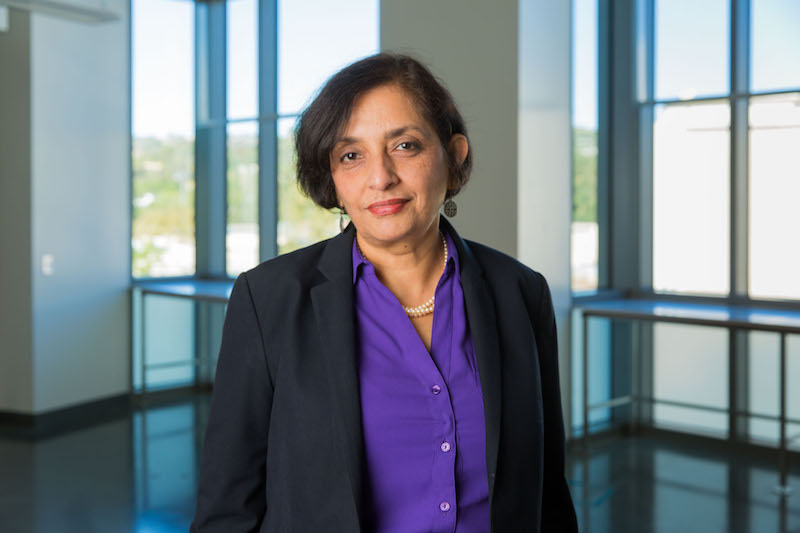
|
|
Jayathi Murthy
Dean, Henry Samueli School of Engineering and Applied Science, University of California, Los Angeles
Jayathi Y. Murthy became the seventh dean of the UCLA Henry Samueli School of Engineering and Applied Science on January 1, 2016.
Before joining UCLA Engineering, Murthy was chair of the Department of Mechanical Engineering at the University of Texas at Austin, and held the Ernest Cockrell Jr. Memorial Chair in Engineering. Consistently ranked as one of the top mechanical engineering departments in the country, the department has 66 faculty and approximately 1,500 students.
From 2008 to 2014, Murthy served as the director of the Center for Prediction of Reliability, Integrity and Survivability of Microsystems (PRISM), a $21 million center of excellence supported by the National Nuclear Security Administration (NNSA).
Prior to joining the University of Texas at Austin, Murthy was the Robert V. Adams Professor of Mechanical Engineering at Purdue University from 2008 to 2011. Before joining Purdue, she was a professor of mechanical engineering at Carnegie Mellon University in Pittsburgh.
From 1988 to 1998, Murthy worked at New Hampshire-based Fluent, Inc., a developer and vendor of the world’s most widely used computational fluid dynamics software. She led the development of algorithms and software that still form the core the company’s products.
Murthy began her career at Arizona State University, where she was an assistant professor of mechanical and aerospace engineering from 1984 to 1988.
Her research interests include nanoscale heat transfer, computational fluid dynamics, and simulations of fluid flow and heat transfer for industrial applications. Her recent research has addressed sub-micron thermal transport, multiscale multiphysics simulations and uncertainty quantifications.
Murthy received a Ph.D. in mechanical engineering from the University of Minnesota, an M.S. from Washington State University and a B. Tech from the Indian Institute of Technology, Kanpur. She is a fellow of the American Society of Mechanical Engineers and the author of more than 280 technical publications. She serves on the editorial boards of Numerical Heat Transfer and the International Journal of Thermal Sciences. She is an editor of the second edition of the Handbook of Numerical Heat Transfer.
|
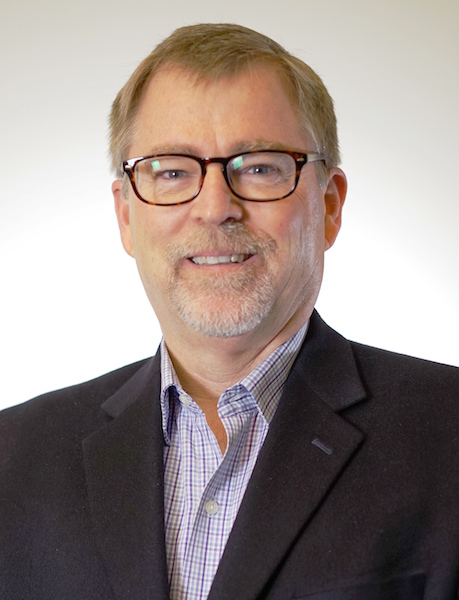
|
|
Jim Parks
Program Manager, Energy Research and Development, Sacramento Municipal Utility District
Jim Parks is a program manager in the Energy Research and Development department at the Sacramento Municipal Utility District (SMUD). He currently oversees energy efficiency and grid modernization R&D projects. He recently completed a $308 million smart grid initiative (SmartSacramento®) with over 40 individual projects ranging from smart meters and distribution automation to customer programs including demand response and energy efficiency.
Prior to his current assignment he worked with emerging energy efficiency technologies, electric transportation, energy efficiency program development, energy efficiency program operations and transmission planning.
|
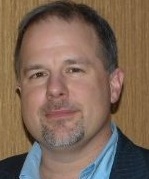
|
|
Mark Feasal
Vice President, Electric Utility Segment & Smart Grid, Schneider Electric
Mark Feasel is responsible for the Electric Utility segment and Smart Grid for Schneider Electric in the North America.
The world’s traditional electrical network – simple and linear, with centralized energy production and passive consumption – is undergoing a transformation to a much more complex, interconnected, and interactive model: the Smart Grid. However, for this network to become intelligent, users require connectivity, simplicity, and security.
From the Utility control center to the end customer's load, Schneider Electric solutions improve the resiliency, efficiency, security, and sustainability of energy.
Throughout Mark’s career at Schneider Electric he has lead business activities for the Energy Business and Power Solutions in North America.
Mark joined Schneider Electric in 2005 through the company’s acquisition of Power Measurement, Inc., and began his career with the United States Navy serving in the Electrical Division of ballistic missile nuclear submarine.
Mark is a graduate of the University of Toledo
|
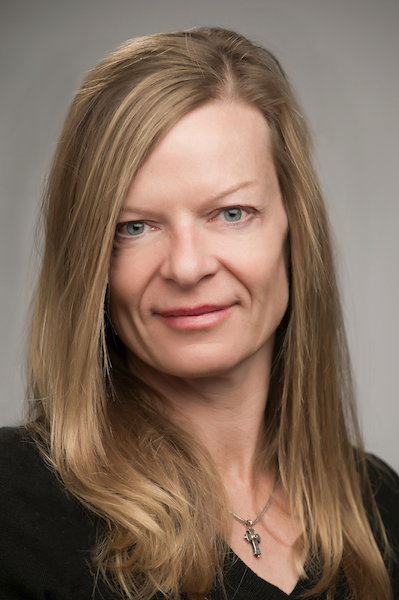
|
|
Martha Symko-Davies
Director of Partnerships, Energy Systems Integration (ESI) National Renewable Energy Laboratory (NREL)
Dr. Martha Symko-Davies is the Director of Partnerships for Energy Systems Integration (ESI) at the National Renewable Energy Laboratory (NREL) in Golden. Dr. Symko-Davies has developed over 75 partnerships and over $12M Funds-in with key stakeholders in the area of Energy Systems Integration (ESI) to address the challenges of systems integration at all scales from residential to utility. Enabling this integration is the Energy Systems Integration Facility (ESIF) which is the nation’s first research facility able to conduct integrated megawatt-scale research, development, and testing of the components and strategies needed to safely integrate clean energy technologies seamlessly. This integration includes electricity, therma, water and fuels pathways. Prior to this role she was the architect and integrator for the PV Technology Incubator, funded in part by the Department of Energy, resulting in over $1.4 billion in private investments. Dr. Symko-Davies was recognized by DOE as one of the top innovators in the area of photovoltaics, and recently received four R&D 100 Awards and recognition by the Denver Business Journal as a 2014 “Top Women in Energy.”
|
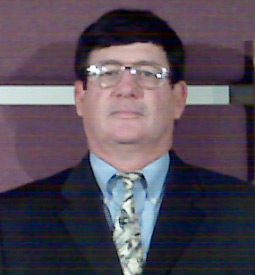
|
|
Mike Gravely
Deputy Division Chief of the Energy Research and Development Division, California Energy Commission
Mike Gravely is the Deputy Division Chief of the Energy Research and Development Division at the California Energy Commission. The Division manages over $150 million annually in new energy related research and development projects. His efforts support the energy research and development needs of the state in a variety of areas that include: expanding energy efficiency and demand response, integrating renewables, evaluating new advanced generation systems, implementing the California Smart Grid, guiding energy related environmental research, assessing future energy storage needs, and demonstrating energy smart sustainable communities.
Prior to his current position, he was the Manager of the Energy Systems Research Office at the Energy Commission where he managed over $200 million in active energy related research and development projects in a variety of technical areas that include: Smart Grid, Renewable Grid Integration, Microgrid implementation, Transmission, Distribution, Demand Response, Energy Storage, Distributed Energy Resources, Carbon Capture and Sequestration (CCS), and Sustainable Communities.
Mike has over 30 years of engineering and integration experience in the energy, aerospace and communications fields. Prior to the Energy Commission, Mike served in executive positions in the Federal Government and private industry including managing research, testing and fielding of distributed generation and energy storage systems for the Department of Defense, addressing the challenges of a start up energy storage company and overseeing a staffing and training company that specialized in serving the utility industry. Mike Gravely has a BSEE from the Virginia Military Institute and an MSEE from California State University at Sacramento.
|
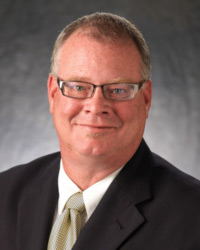
|
|
Michael Boehm
Managing Director, Advanced Sustainability Institute
Founder of the Advanced Sustainability Institute, dedicated to thought leadership, demonstration, and entrepreneurship in new energy and cleantech, Mr. Boehm is an entrepreneur, consultant and educator in the sustainability space. He serves as Executive Director for the Advanced Transportation Center, Industry Liaison for UCLA's Smartgrid Energy Research Center, and consultant to its EVSE spin off MOEV, and has assisted AeroVironment, Trexa, LADWP, GenOn, LAANE, SaveMe, Sempra and Toyota in their new energy and Electric Vehicle endeavors. He also served as CEO of Solar Energy Development International - an early developer of solar concentrator technology. Mr. Boehm is the Executive Director of the E4 Advanced Transportation Center, coordinating regional efforts toward developing a cleantech industry sector. Educated at Northwestern University and Stanford Graduate School of Business, Michael has taught sustainability in programs at Darden School of Business, UCLA, and the University of Santa Clara. Mr. Boehm serves as board member and chairman of the German American Business Association, Southern California, CleanTech and Sustainability Industry Group, co-chair of the Los Angeles Economic Development Corporation E4-Mobility Alliance, and is an advisor to LA's Clean Tech incubator.
|
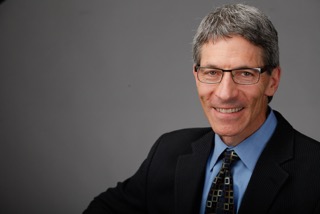
|
|
Peter Schwartz
Principal Investigator and Program Manger, Building Technology and Urban Systems Division, Lawrence Berkeley National Laboratory
Born in Chicago, IL, Peter Schwartz began his energy career over 38 years ago. His deep energy and utility experience combined with innovative approaches to technology has led him to be an internationally recognized and a frequent speaker on energy efficiency, building and Smart Grid technologies. He currently is a Principal Investigator and Program Manger 4, Building Technology and Urban Systems Division at Lawrence Berkeley National Laboratory, where he manages research teams investigating advanced, networked lighting controls and demand response-enabling technologies.
Previously, as Head of Department, he directed DNV GL's Program Technical Services Group (TSG) developing a "knowledge center" supporting major utility clients across the nation, including creating advanced analysis tools. TSG promulgates innovative energy-efficiency (EE), demand response (DR) and distributed energy resource (DER) programs. He developed and implemented LINCS™ (Lighting and Intelligent Network Controls System) program for major utilities across the U.S.
His former energy-consulting firm, Peter Schwartz & Associates, LLC, specialized in large energy infrastructure, strategic planning, research and project development.
Recently as VP Business Development of LUMEnergi, Inc., he was a catalyst behind market transformative change promoting advanced lighting control technologies. He is the former Founding Board President and Senior Program Director with the New Buildings Institute, promoting advanced building energy technologies, energy codes, standards and design guidelines. He managed NBI's 2001 Advanced Lighting Guidelines project and NBI's $6 million Public Interest Energy Research (PIER) program.
Prior to NBI, Mr. Schwartz was Director of Business Analysis for LAS & Associates, an energy-consulting corporation focusing on integrated infrastructure investments. He managed demand-side and supply-side energy projects for large, multi-facility institutional clients including: universities, San Francisco International Airport and the Navy Public Works Center—San Diego. Total project value exceeded $500 million.
Prior to LAS, he was Director of Business Energy Management and a Senior Program Manager with PG&E's $76 million Commercial Energy Efficiency Programs. Mr. Schwartz also worked as a Senior Marketing Engineer for the Pacific Energy Center, where he educated more than 3,000 design professionals, building developers, facility managers and contractors on energy-efficient technologies, advanced lighting systems and sustainable building design.
He received his bachelor's degree in environmental physics from the University of Massachusetts, Amherst, specializing in technology assessment, energy policy and environmental politics, and his master's degree in environmental planning from Arizona State University, specializing in building energy technology and analysis.
|
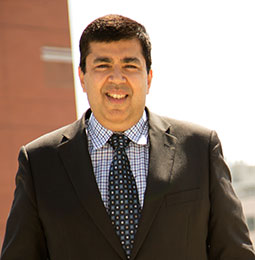
|
|
Rajit Gadh
Director, UCLA Smart Grid Energy Research Center
Dr. Rajit Gadh is a Professor at the Henry Samueli School of Engineering and Applied Science at UCLA, and the Founding Director of the *UCLA Smart Grid Energy Research Center* or *SMERC*. He is also Founder and Director of the *Wireless Internet for Mobile Enterprise Consortium* or *WINMEC*.
Dr. Gadh's research interests include Smart Grid Architectures, Smart wireless communications, sense and control for Demand Response, Micro Grids and Electric Vehicle Integration into the Grid, Mobile Multimedia, Wireless and RFID Middleware, RFID and Wireless sensors for Tracking Assets, RF-sensor-control interfaces,and Visualization. He has over 150 papers in journals, conferences and technical magazines, and, 3 patents granted.
He has a Doctorate degree from Carnegie Mellon University (CMU), a Masters from Cornell University and a Bachelor's degree from IIT Kanpur. He has taught as a visiting researcher at UC Berkeley, has been an Assistant, Associate and Full Professor at University of Wisconsin-Madison, and did his sabbatical as a visiting researcher at Stanford University for a year. He has won several awards from NSF (CAREER award, Research Initiation Award, NSF-Lucent Industry Ecology Award, GOAL-I award), SAE (Ralph Teetor award), IEEE (second best student-paper, WTS), ASME (Kodak Best Technical Paper award), AT&T (Industrial ecology fellow award), Engineering Education Foundation (Research Initiation Award), William Wong Fellowship award from University of Hong-Kong, etc., and other accolades in his career. He is on the Editorial board of ACM Computers in Entertainment Publication and the CAD Journal.
|
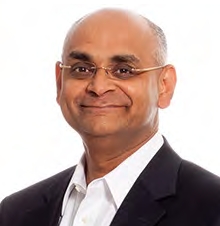
|
|
Ramanath Ramakrishnan
EVP & Chief Technology Officer, Eaton
Ramanath Ramakrishnan is executive vice president and chief technology officer for Eaton, a power management company. He leads Eaton businesses in developing new technology to increase the company’s ability to create solutions for customers’ power management challenges.
In addition, he focuses on building organizational capability in the company’s technology and engineering functions to support fast-paced development of innovative power management products and services.
Ramakrishnan joined Eaton in 2005 as a director of corporate technology and most recently was senior vice president of technology for the Industrial Sector, where he led significant technology and innovation programs for Eaton’s Aerospace, Hydraulics and Vehicle businesses. Prior to that, he led the successful growth of Eaton’s India Engineering Center in Pune, India.
Before joining Eaton, he had been with GE for nine years, most recently as general manager of reliability and safety engineering, and held their Global Six Sigma quality and e-engineering role for global research as well as other progressively responsible engineering roles with GE. Prior to GE he held engineering positions with Wyman-Gordon Company, an
aerospace components manufacturer.
Ramakrishnan is a certified professional engineer with a master’s degree in mechanical engineering from Ohio University in Athens, Ohio, and a bachelor’s degree in mechanical engineering from Bangalore University in India. He is also a certified Six Sigma Master Black Belt and holds two patents.
Eaton is a power management company with 2015 sales of $20.9 billion. Eaton provides energy- efficient solutions that help our customers effectively manage electrical, hydraulic and mechanical power more efficiently, safely and sustainably. Eaton has approximately 97,000 employees and sells products to customers in more than 175 countries. For more information, visit www.eaton.com.
|
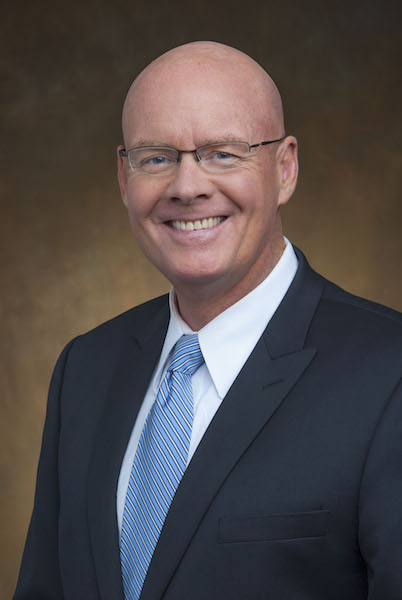
|
|
Tom Doughty
Vice President, Customer and State Affairs California ISO
Tom Doughty is the ISO’s Vice President of Customer and State Affairs. Since joining the ISO in 2003, Mr. Doughty has held a number of leadership assignments in the customer care and regulatory affairs areas. He is responsible for the ISO’s interactions with California regulatory and governmental bodies. He also oversees the ISO’s customer service and communications functions.
While at the ISO, Mr. Doughty created The Stakeholder Symposium, along with the Voice-of-the-Customer and TouchPoint Mapping programs, which are among the organization’s most successful customer engagement endeavors. Earlier, he was the architect of the ISO’s stakeholder process, which was reconfigured a decade ago in response to customer requests.
Mr. Doughty recently entered his fourth decade in the electric industry. His résumé includes executive leadership positions with the Los Angeles Department of Water and Power, a subsidiary of Xcel Energy, and a number of other entrepreneurial energy service and demand response providers. In the late 80’s, Mr. Doughty was among a small group of innovators that drove the launch of electric vehicles in the U.S.
He is a licensed engineer and holds degrees in engineering and business administration from UC Davis and UCLA, respectively.
|